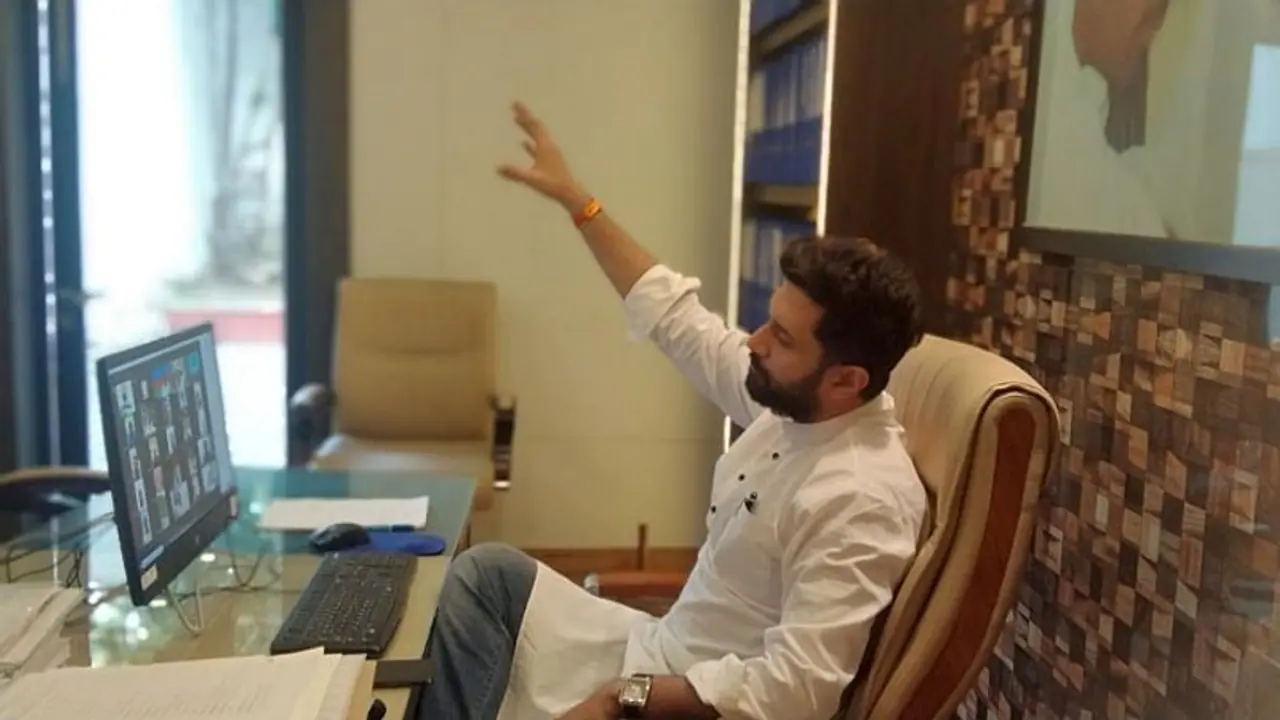Chirag Paswan was on Tuesday sacked from the post of the Lok Janshakti Party national president in an emergency meeting of rebel MPs. Where did his calculations go wrong? Let's understand.
Chirag Paswan was on Tuesday sacked from the post of the Lok Janshakti Party national president in an emergency meeting of rebel MPs.

Chirag, the son of late party founder Ram Vilas Paswan, took to Twitter to say that he had failed in his efforts to keep the party founded by his father and his family together.
So, where did Chirag Paswan's calculations go wrong? Let's understand.
The Pari'war' split
A year after the death of his father, who was also one of Bihar's prominent Dalit leaders, the Lok Janshakti finds itself in disarray. The conflict primarily is between Chirag and his uncle, Pashupati Kumar Paras.
LJP was formed in 2000 by Ram Vilas Paswan, his brother Ram Chandra Paswan, Jai Narain Prasad Nishad and Ramesh Jigajinagi after a split from Janta Dal (United) and gained a considerable following amongst the Dalits in Bihar. Currently, the LJP is part of the Bharatiya Janata Party-led National Democratic Alliance.
The late Ram Vilas Paswan was in the past accused many times of being biased towards his family members by giving them posts in his party, and the same applied to his son and brothers. However, the party leaders have now said enough is enough.
The rival camp led by Pashupati also includes Chirag's cousin Prince Raj. The rebel group approached Lok Sabha speaker Om Birla and requested for the group to be treated as a separate entity. The rebel LJP MPs also expelled Chirag from all party posts. Once the Speaker notifies the faction as a separate group and if accepted by the Election Commission, the split will be formal.
The road to the split
The reasons for the split are manifold, but one of the biggest reasons was the animosity between the uncle and the nephew over the latter occupying the party president's position after the death of Ram Vilas Paswan. The loyal relationship Pashupati Paras had with his brother soured when the younger Paswan came into power.
Even though Paswan drove to his uncle's house to have a conversation and perhaps reconcile, he was told that Paras was not at home and turned away. The relationship between uncle and nephew broke when the former praised Bihar Chief Minister Nitish Kumar for developing the state during his 15-year tenure. The praise angered Chirag, who reprimanded his uncle and threatened to expel him from the party.
Another issue claimed by some LJP leaders is Chirag's alleged arrogance, stubbornness and doubtful leadership decisions. Paras did not approve of his decision to contest the Bihar elections separate from the NDA and field candidates against Nitish Kumar. Besides, the leaders also questioned Chirag's decision to launch the campaign again JDU without cutting ties with the NDA. The LJP was victorious on just one seat in the assembly election with a nearly 6% vote share and cost the JD-U nearly 35-40 seats.
Many LJP leaders also favour Pashupati's leadership and draw a parallel with Ram Vilas Paswan's style of functioning.
Did JD-U have a hand in the split?
It is yet unclear if the faction led by Pashupati Paras will join the JD-U, but it has been favourable towards Bihar Chief Minister Nitish Kumar.
According to media reports, Paras had been associated with JD-U MP Lallan Singh for quite a while. It is also known in the political circles that Lallan is Nitish's right-hand man and a close aide.
Nitish Kumar fought against the LJP in 2005. The LJP fought independently and won 29 seats. Ram Vilas Paswan supported neither opponents, resulting in a hung assembly. Nitish had the last laugh when the LJP split, and 12 MLAs joined the JD-U. The split gave Nitish enough seats to form a government. Ram Vilas Paswan put aside his differences with Lalu Prasad Yadav and rebuilt his party, won the Hajipur seat in 2009, and became a minister in the UPA government led by Manmohan Singh. He then joined the NDA when Nitish Kumar abandoned it in 2014. Paswan won 7 Lok Sabha seat in 2014 compared to two by the JD-U.
The conflict between the JD-U and the LJP intensified in 2017 when the former returned to the NDA and refused to recognise LJP's existence and opposed it. In 2019, the LJP won 6 seats, and the JD-U won 16. In 2020, the younger Paswan rebelled against Kumar by fielding his party candidates against JDU candidates and supported Modi. JD-U was reduced to only 43 MLAs in the assembly election. Since then, according to media reports, Nitish Kumar had been working behind the scenes to get back at the LJP.
